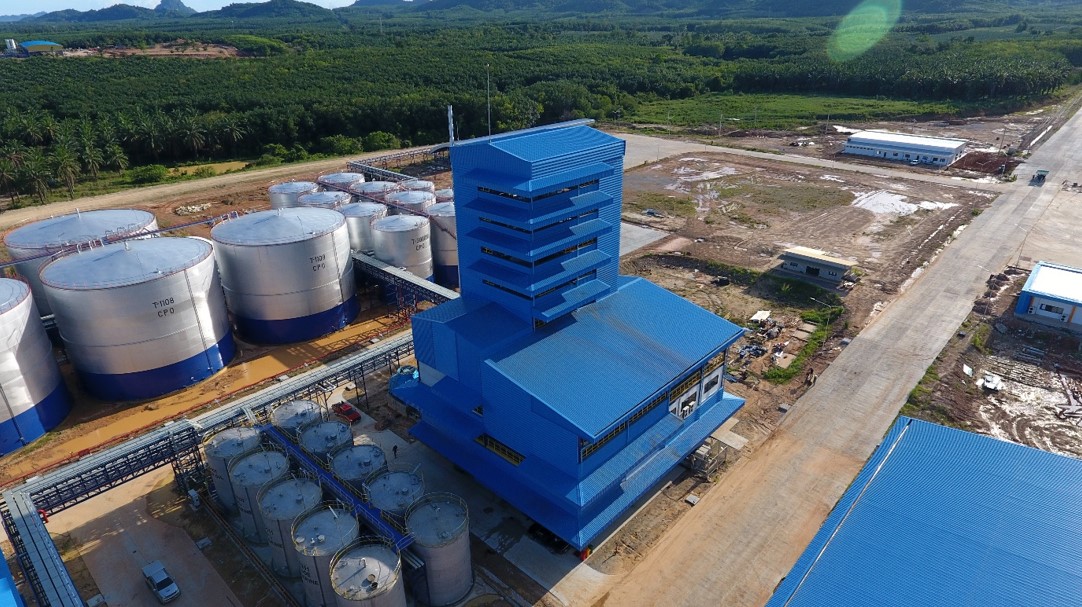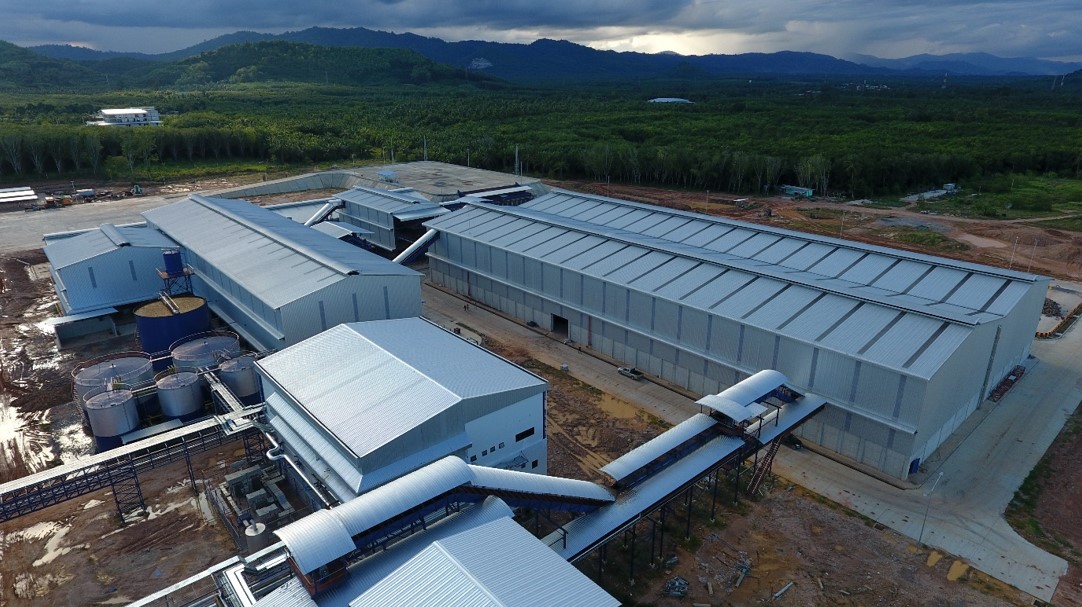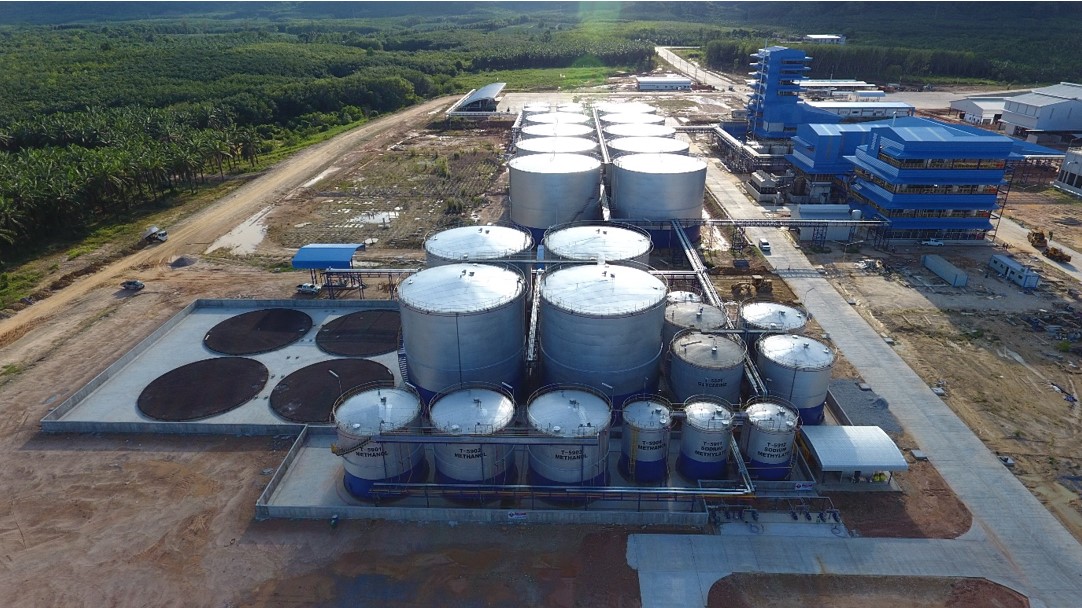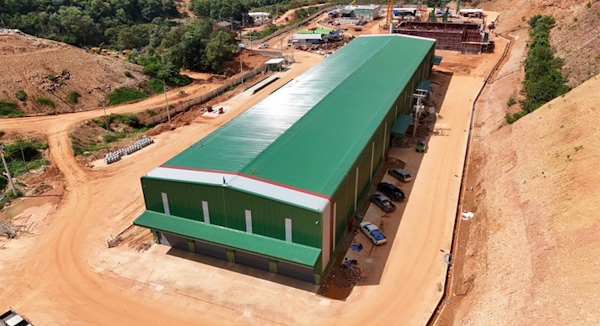Renewable Energy and Investment Business
Renewable Energy Business and Investment
The Company places a high value on sustainable energy practices and actively seeks to address the risks associated with petroleum-based energy shortages by investing in renewable energy ventures. Additionally, these investments serve as a means to support local farmers and promote public policies conducive to environmental conservation. PTG has made significant investments in various renewable energy enterprises, including a biodiesel operation that manufactures and markets environmentally-friendly products derived from palm oil, such as biodiesel (B100) and refined palm olein (ROL), in collaboration with PPP Greencomplex Public Company Limited (a joint venture of PTG) (“PPPGC”). Furthermore, PTG is engaged in refuse derived fuel (RDF) endeavors through PTG Green Energy Co., Ltd. (“PTGGE”), Palangngan Pattana 5 Co., Ltd. (“PP5”), and Clean Community Co., Ltd. (“CCC”), all of which operate as subsidiaries of the Company.
Biodiesel Energy Business
PPPGC has embarked on the production and distribution of biodiesel through a joint venture with TCG Holdings Co., Ltd, and RD Kasetpattana Co., Ltd., focusing on the manufacturing and distribution of palm oil products. This initiative constitutes a comprehensive palm complex, encompassing the entire value chain from cultivating high-quality oil palms for farmers to various manufacturing processes. These processes include an extraction plant, palm oil refinery, biodiesel plant, vegetable oil plant, biomass-based electricity production plant, and biogas energy production plant. Additionally, the complex features oil depots with a combined capacity of approximately 100,000 tons, facilitating efficient inventory management.
Currently, the plant boasts a daily production capacity of 0.52 million liters1/ of biodiesel (B100) and 0.15 million liters2/ of refined palm olein (ROL), which is consumable vegetable oil. The biodiesel (B100) produced is incorporated into diesel fuel in accordance with government regulations. PPPGC is strategically positioned to augment its production capacity to meet the escalating demand for palm-based products, aligning with the growing trends towards eco-friendly and bio-circular-green economies, and the imperative to reduce greenhouse gas emissions in the foreseeable future.
Note :
1/ The density of biodiesel = 0.863 million liters.
2/ The density of consumable vegetable oil. = 0.9 kilograms per liter
Waste-to-Energy Business
Palangngan Pattana 5 Co., Ltd. ("PP5"), a subsidiary of the Company, is undertaking a waste-to-electricity project that utilizes waste from the Ban Pru Municipality in Songkhla Province and neighboring local government organizations as the primary fuel source. The project is located in Hat Yai District, Songkhla Province, covering an area of approximately 30 rai. It is currently under construction and development and will consist of a direct combustion power plant, a waste sorting facility for producing Refuse Derived Fuel (RDF), a wastewater treatment plant, and a landfill with a capacity of approximately 600,000 tons of waste sourced from local communities, which will be used to generate electricity.
The project has already signed a Power Purchase Agreement (PPA) with the Provincial Electricity Authority (PEA) in April 2023. The waste-to-energy plant is expected to begin commercial operations (COD) in 2025. The plant will have the capacity to process up to 400 tons of waste per day, supplying electricity to PEA under a 20-year contract. The electricity will be purchased under the Feed-in Tariff (FiT) scheme for Very Small Power Producers (VSPP), with a combination of a fixed FiT rate (FiT Fixed: FiTF) and a variable FiT rate (FiT Variable: FiTV), totaling 5.08 baht per kilowatt-hour. This includes a basic electricity purchase rate and an additional FiT Premium of 0.70 baht per kilowatt-hour, which will be provided for the first 8 years starting from the commercial operation date (COD).
Additionally, the waste sorting facility for producing Refuse Derived Fuel (RDF) is projected to commence commercial operations in the second quarter of 2025. The facility will be capable of processing 300-600 tons of fresh or accumulated waste daily, and will produce 100-200 tons of RDF Type 3 or 2.5 per day. This RDF will be sold to cement plants and other waste-to-energy plants within the region. The project will also generate revenue from waste disposal services, the sorting and sale of recyclable materials, and from reductions in greenhouse gas emissions, which can be converted into carbon credits.
PP5 is dedicated to advancing the management of fresh and accumulated community waste in the southern region of Thailand to effectively address the country’s growing energy needs. The company aims to maximize the efficiency of this investment while carefully considering the social, community, environmental, and stakeholder impacts.





